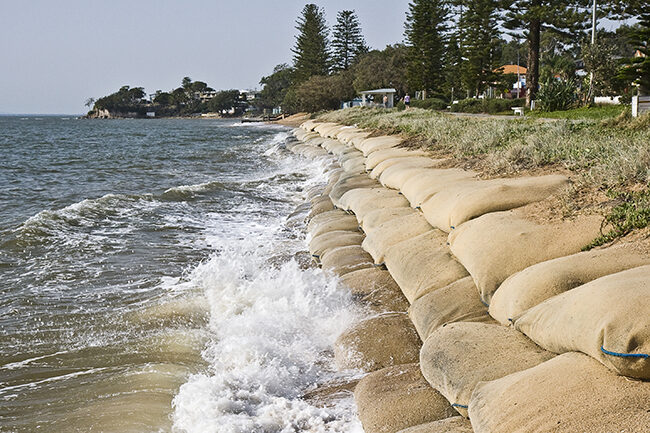
Victoria Herrmann, president and managing director at the Arctic Institute, speaks with host Nicole Kang Ferraiolo about climate change and forced displacement in the US and what it means for different communities and their cultural heritage. Drawing on her own history as the granddaughter of Holocaust survivors, Victoria makes the case that the documentation and preservation of culture helps build resilience, and that cultural heritage should be at the forefront of climate policy.
Climate Change Could Displace up To 300 Million People by 2050 (Business Insider)
Media Coverage on Migration: Promoting a Balanced Reporting (International Organization for Migration and the UN Migration Agency)
Bigotry, Panic Reflected in Media Coverage of Migrants and Refugees (Reuters)
Climate Change and Internal Displacement (The Brookings Institute)
Groundswell: Preparing for Internal Climate Migration (The World Bank)
Modeling migration patterns in the USA under sea level rise (PLOS One)
As wildfires, flooding, and hurricanes grow more frequent, climate migration begins (Yale Climate Connections)
The Shoah: Collecting Testimonies (USC Shoah Foundation)
Survivor Reflections and Testimonies (U.S. Holocaust Memorial Museum)
Fourth National Climate Assessment (U.S. Global Change Research Program)
The World’s Most Influential People in Climate Policy (Apolitical)
Climate Change and Indigenous Peoples (The United Nations)
Racial Disparities and Climate Change (Princeton Student Climate Initiative)
‘A lot at stake:’ indigenous and minorities sidelined on climate change fight (The Guardian)
Only 11 Years Left to Prevent Irreversible Damage from Climate Change, Speakers Warn during General Assembly High-Level Meeting (The United Nations)
CLIR’s Postdoctoral Fellowship Program
Further Reading
Victoria Herrmann bio and publications
Behind the Mic

Nicole Kang Ferraiolo
Nicole Kang Ferraiolo is CLIR’s director of global strategic initiatives. She was previously a program officer for CLIR’s regranting and fellowship programs. Prior to that, Nicole worked at Columbia University where she oversaw several projects including an interdisciplinary research program on global governance that focused in turn on nuclear proliferation, pandemics, religious conflict, and climate change.

Victoria Herrmann
Dr. Victoria Herrmann is the president and managing director of The Arctic Institute, where her research and writing focus on climate change, community adaptation, and migration. Victoria currently serves as the Principal Investigator of the National Science Foundation-funded Arctic Migration in Harmony: An Interdisciplinary Network on Littoral Species, Settlements, and Cultures on the Move, a major international initiative to integrate discipline-isolated research on changing Arctic migration patterns and advance knowledge on the movement of peoples, economies, cultures, and ecosystems catalyzed by environmental variability. Beyond the Arctic, Victoria studies climate-induced displacement, migration, and relocation in North America and Fiji as a National Geographic Explorer. As an assistant research professor at Georgetown University’s School of Foreign Service, Victoria teaches environmental communication.
